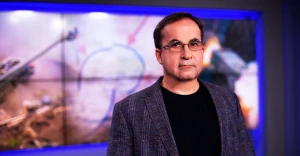
Ukraine and its neighbors have not learned how to respond to Russian PSYOPs
The Russians are always attacking Ukraine's relations with its neighbours
This has been going on very actively since 2014. It is clear that our history has many sore spots in our relations with Poland, Slovakia, Hungary, and even Romania.
For example, we have a lot of painful issues with the Poles, starting with the Cossack era and ending with the Volyn massacre and Operation Vistula. With the Slovaks, we have problems with the issue of "Rusyns", a fictional ethnic group that is nevertheless officially recognised by the Slovaks. With Hungary - you all know about it: Orban demands the right for the Hungarian minority not to learn Ukrainian and not to respect the Ukrainian state. With the Romanians, everything is calm now, but during the time of the scandalous President Basescu, they were actively distributing passports in Chernivtsi and Zakarpattia regions and building a spy network.
All of us are very vulnerable to Russian information attacks. For example, in 2020, Ukrainian police detained a man who was systematically destroying monuments throughout Ukraine, provoking national conflicts. In particular, he blew up a monument to the Hungarian people on the Veretsky Pass, a monument to the fallen Poles in Huta Pieniacka, desecrated the grave of Tzadik Nachman, and blew up monuments to ATO soldiers. If earlier we could afford to react to this slowly, now any conflict with our neighbors is " death-like" for us.
All parties understand that these conflicts are often provoked by Russian information and intelligence services, but they do not have an adequate response tool. Moreover, such conflicts always find an internal client in the form of some political forces that quickly mobilize them in their political interests.
That is why, back in 2017, we proposed to the authorities to establish permanent "round tables of the intellectual elite" with each country. The idea was to have leading intellectuals - historians, writers, scientists - from each country jointly discuss and research problematic and promising issues. In the case of a crisis, the roundtable was to issue a joint statement to influence public opinion and prevent confrontation.
This tool could have helped with the grain situation today. Obviously, this whole situation requires a public discussion, not the blocking of the borders of a bleeding country. A statement by prominent intellectuals could clarify the issue and propose solutions without harming other interests of countries.
Although there is no such instrument today, it is not too late to create one. After all, we must somehow begin to counteract the Russian PSYOPs, which have been launched around the world since last spring.
About the author. Victor Andrusiv, political and public figure, analyst, and publicist
The editors do not always share the opinions expressed by the authors of the blogs.
- News












































